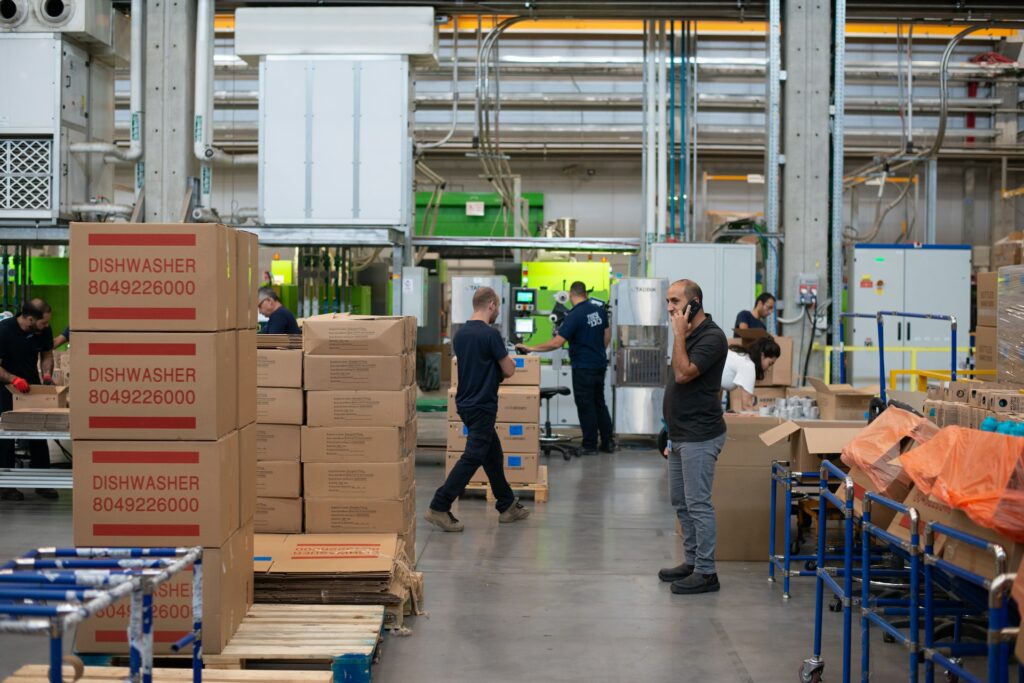Quality control is an indispensable position in any field. It can be the solution to countless problems that arise on the job, such as when a product does not meet specific requirements or regulations. A quality control professional can detect and rectify this issue with ease.
By effectively utilizing quality control processes, companies can ensure that their product is of the highest caliber and meets customer demands. Moreover, as problems are identified early on in the production process, they can be avoided before they even occur; saving both time and money in the meantime. Quality Control is a powerful tool for any organization to have at their disposal!
What Is Quality Control, And Why Is It Important?
Quality control is an important function that ensures products are safe and meet customer expectations and standards before being released on the market. Although it can be tedious work, quality control becomes even more critical in industries such as food, pharmaceuticals, or others where errors could lead to severe consequences. It’s a process that guarantees your product meets all its desired outcomes.
Quality assurance and quality control work together seamlessly to guarantee that products are safe, reliable, and exceed customer satisfaction. Quality assurance outlines the desired standards while quality control verifies that those goals have been achieved before anything is made available for sale. When both teams collaboratively operate in unison, businesses can be certain they’re providing superior offerings each time.

The Roles Of Quality Control Inspector
As a quality control inspector, your job is to guarantee that goods fulfill the required standards before they are available for public consumption. Unfortunately, this role can be tedious and repetitive since products must often be examined repeatedly to meet those set guidelines. This type of monotony may leave you feeling drained in no time.
Quality control inspectors are instrumental in guaranteeing the quality of products before they reach the consumer. This safeguards consumers from items that may not be safe or up to industry standards. Moreover, these professionals must have a sharp eye for detail – an attribute which can benefit them immensely in any occupation.
The Duties Of A Quality Control Inspector
As a Quality Control Inspector, it is your responsibility to guarantee the safety and stability of goods before they can be released for sale. This includes meticulous inspection for any imperfections, rigorous testing that adheres to all regulations, and comprehensive documentation throughout each step of the process.
Quality control inspectors are the ultimate safeguard – meticulously testing products for hazards, validating that labels and warnings are present, and scouring items for any defects. Should an issue be found during their review process, it will promptly be documented by the inspector and returned to the manufacturer so that it can be swiftly remedied.
Quality control inspectors take pictures or videos of the product and document any defects that they find. They then forward this vital information back to the manufacturer so that it can be rectified. In some cases, they may also need to get in touch with the customer if a problem is found with a purchased item.
Quality control inspectors are employed in a wide array of industries, including automotive production, food and beverage manufacturing, pharmaceutical processing and electronics assembly. As a rule of thumb, they work during regular business hours; however overtime may be necessary to ensure deadlines are met or cover for any unanticipated absences among colleagues.
It is quality rather than quantity that matters.
Lucius Annaeus Seneca
How To Get A Job In Quality Control?
To excel as a quality control inspector, it is essential to have an in-depth knowledge of the production process.
To detect any anomalies or flaws that may crop up during the manufacturing process, you must be adept at examining products. Furthermore, it is crucial to comprehend the various kinds of quality control tests and inspections available. By doing so, you can effectively ensure a product’s reliability prior to its release.
If you want to work as a quality control inspector, it’s typically necessary to possess at least a high school diploma. That being said, certain employers may prefer candidates who have completed an Associate’s degree in the field of quality control or related discipline or are certified by a vocational training program.
Quality control inspectors are essential for ensuring that products meet the necessary standards; therefore, it is imperative for them to have effective communication with both managers and workers. They need to be able to succinctly describe any defects or issues that may have occurred throughout production, as well as offer constructive feedback on how these can be improved in the future. Without this critical interaction between inspectors and other stakeholders, product quality could suffer significantly.
Quality control inspectors must not only be able to manage the pressure of deadlines, but they need to guarantee that products meet certain standards before being released. If an inspector discovers any defects or issues while inspecting a product, it needs to addressed quickly in order for the product’s release timeline not be disrupted. In some cases, this may require overtime work from the inspector so as to ensure quality compliance with all necessary regulations and requirements.
If you’re not up for the challenge of extra hours, an alternate occupation may be best. Quality control inspector jobs can require a great deal of effort and concentration if one needs to stay within a timeline.
What Is The Salary Of A Quality Control Inspector?
Quality control inspectors can expect their salaries to fluctuate based on their education and experience. Typically, they start off earning an hourly wage, but as they gain more expertise, they will be able to move up the ranks into a salaried position. With industry projections forecasting an increase in demand for these professionals over the next ten years, job prospects are looking very positive!
Quality control inspectors are in high demand for 2022 and beyond, with an expected salary of around $38,000 per year. What’s more is that this job outlook looks bright, estimated to grow at a 7% rate from 2018-2028! This need stems from the necessity of ensuring products meet certain standards before they are distributed to consumers.
Quality control inspectors have plenty of reasons to find their job rewarding. Foremost, they are rewarded with reasonable compensation based on their education and experience in the field. Moreover, the prospects for career growth are positive – only boundless opportunities await those who take up this role! On top of that, many quality control inspectors often work in pleasant surroundings such as clean and well-lit environments.
However, there are also a few reasons why quality control inspectors may find their job to be less than ideal. First, the work can be repetitive and boring. Second, quality control inspectors may have to work long hours, including nights and weekends. Finally, some quality control inspectors may be exposed to hazardous materials.

Conclusion
Quality control can be an appealing job opportunity – from the competitive compensation to positive career prospects and often comfortable working conditions. However, it is important to note that this line of work may become tedious or monotonous at times, causing a decline in morale for some individuals. So what do you think? Is quality control truly worth pursuing? Let us know your thoughts in the comments below!




